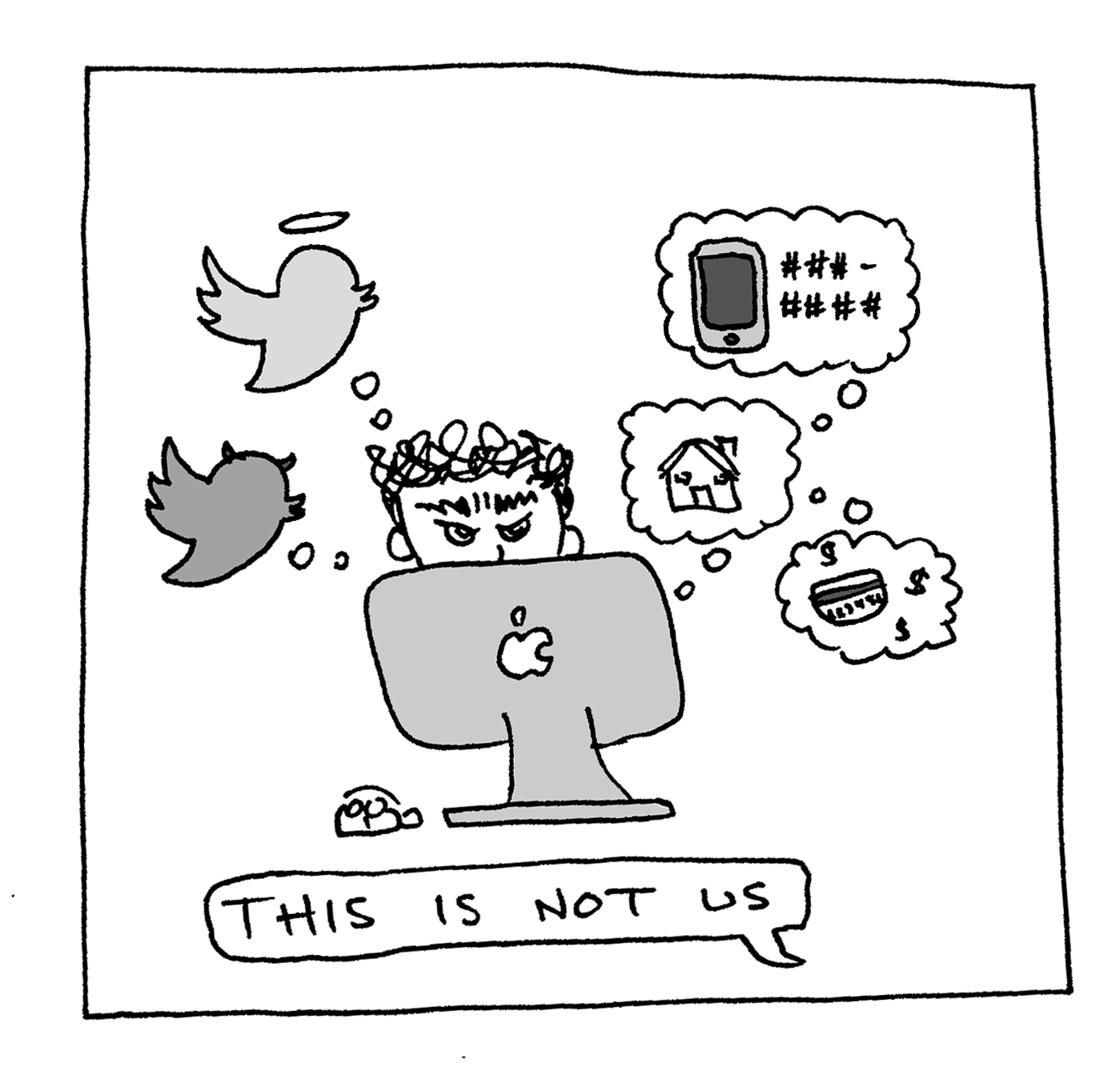Uncovering the liberal hypocrisy of doxing Neo-Nazis
October 13, 2017
 This
piece represents the opinion of the author
.
This
piece represents the opinion of the author
.
“This is not us” became an oft-repeated mantra in the aftermath of this summer’s violence in Charlottesville set off by white supremacist protesters. My social media timelines were littered with posts by former high school classmates, many of whom attend the University of Virginia and wanted to distance the horrific events from the institution, the surrounding town and our home state. The desire to alienate the Neo-Nazis who incited the chaos quickly devolved from posts made in solidarity to the exposure of individuals’ personal information.
This act, doxing, has long been a part of Internet culture and was recently used against female activists who critiqued sexism in the video game industry in 2014. Being doxed often entails the release of one’s private information to the Internet, including one’s home address, phone number, employer and other identifying information. Those who doxed participants in the Charlottesville white supremacist rally in this summer aimed to expose information about them in order to ensure that they get fired from their jobs and ostracized in their communities.
I do not take issue with the act of doxing people like the Neo-Nazi activists who took to the streets to advocate for ethnic cleansing. Anyone who holds these views and goes out into public to espouse them deserves to suffer the consequences of believing in such a morally reprehensible ideology. However, this type of ostracization in the name of activism occurs without much consideration of the structural forces that lead to far-right radicalization and exposes liberals’ own hypocrisy on issues of race.
It is widely understood in Europe that those who are radicalized and join terrorist organizations like ISIS do so because of dire socioeconomic situations. Economic hardship and rampant xenophobia have made many young first- and second-generation immigrants in western Europe susceptible to extremist groups. However, there is little consideration of the neoliberal economic policies that have operated at the detriment of the working class in the United States. Liberals and conservatives alike are complacent in the continuation of mass incarceration, police brutality and other forms of racial violence that justify notions of white superiority. So while we are not necessarily wrong to deplore people who actively champion white supremacist ideology, we are misguided in our attempts to solely punish these individuals rather than reforming the broader structures that make people amenable to right-wing extremism.
People’s tendency to resort to doxing Neo-Nazis online is also problematic in its distancing effect. Much like the rallying cry of “this is not us,” exposing a stranger’s personal information is a means of righteous acquiescence that keeps people from questioning themselves or their friends and family. Liberal hypocrisy is laid bare in the notion that it can be easier to expose a racist online and ensure that they lose their job than to call out someone we are close to for a racially insensitive comment. How dedicated to racial justice can we be if we are not equally committed to calling out Neo-Nazis online and the subtle acts of prejudice that occur in our own lives every day?
At Bowdoin, we tend to view these issues as easily fixable by calling people in and tolerating all points of view in the realm of debate. I am still not wholly convinced of this technique, as it often blurs otherwise distinct boundaries between acceptable and unacceptable discourse in the name of free speech. To me, it is still important that we work actively to reinforce the illegitimacy of racist ideas both on and offline. However, radicalism will only flourish under our continued inability to question our own acceptance of inequality and injustice.


Comments
Before submitting a comment, please review our comment policy. Some key points from the policy: